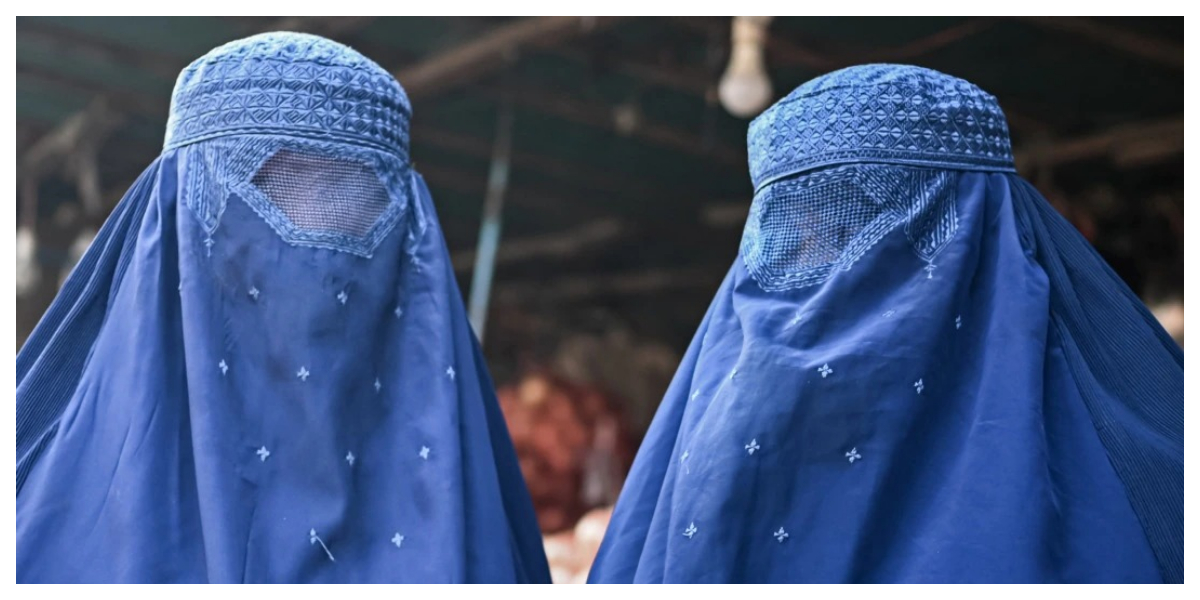Women not wearing hijab ‘trying to look like animals’, say Taliban posters

Women not wearing hijab ‘trying to look like animals’, say Taliban posters (credits:google)
- Taliban’s religious police put up posters across Afghan city of Kandahar. Women who don’t wear an Islamic hijab are “trying to look like animals,” say posters.
- The Taliban have imposed harsh restrictions on Afghan women since seizing power in August.
- U.N. rights chief Michelle Bachelet slams the hardline Islamist government for its “institutionalized systematic oppression” of women.
The religious police of the Taliban have put up posters across the southern Afghan city of Kandahar saying that Muslim women who do not wear an Islamic hijab that fully covers their bodies are “trying to look like animals.” An official confirmed on Thursday.
Since seizing power in August, the Taliban have imposed harsh restrictions on Afghan women, reversing the marginal gains they made in the two decades since the United States invaded the country and toppled the group’s previous regime.
Hibatullah Akhundzada, the country’s supreme leader and Taliban chief, issued a decree in May stating that women should generally stay at home.
They were ordered to cover themselves completely, including their faces, should they need to go out in public.
Read more: Taliban unveil new uniforms for reconstituted police force
This week, the Taliban’s feared Ministry for Promotion of Virtue and Prevention of Vice, which enforces the group’s strict interpretation of Islam, put up posters across Kandahar city showing images of burqas, a type of garment that covers a woman’s body from head to toe.
“Muslim women who do not wear the hijab are trying to look like animals”, say the posters, which have been slapped on many cafes and shops as well as on advertising hoardings across Kandahar — the de facto power center of the Taliban.
Wearing short, tight, and transparent clothes was also against Akhundzada’s decree, the posters say.
The ministry’s spokesman in the capital Kabul was not reachable for comment, but a top local official confirmed that the posters were put up.
“We have put up these posters and those women whose faces are not covered (in public) we will inform their families and take steps according to the decree,” Abdul Rahman Tayebi, head of the ministry in Kandahar, told AFP.
Akhundzada’s decree orders authorities to warn and even suspend from government jobs male relatives of women who do not comply.
Outside of Kabul, the burqa, the wearing of which was mandatory for women under the Taliban’s first stint in power, is common.
On Wednesday, United Nations rights chief Michelle Bachelet slammed the hardline Islamist government for its “institutionalized systematic oppression” of women.
“Their situation is critical,” she said.
After returning to power, the Taliban had promised a softer version of their previous harsh system of governance, enforced from 1996 to 2001.
Read more: Taliban term Indian delegation’s Kabul visit a ‘good beginning in ties’
But since August, many restrictions have been imposed on women.
Tens of thousands of girls have been barred from attending secondary school, and many women have been barred from returning to government jobs.
Women are also prohibited from traveling alone and are only permitted to visit public parks in the capital on days when men are not permitted.
Read More News On
Catch all the Business News, Breaking News Event and Latest News Updates on The BOL News
Download The BOL News App to get the Daily News Update & Live News.